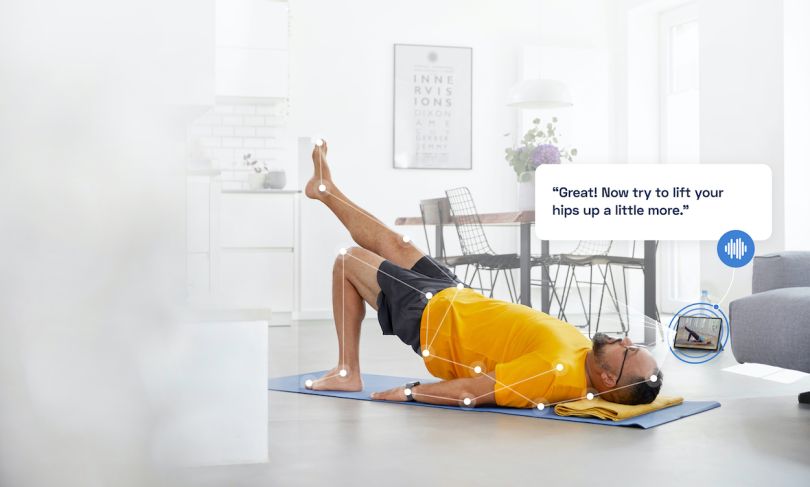
Kaia Health, a Brooklyn-based startup that helps people treat their chronic conditions from home, announced Thursday it closed on a $26 million funding round led by Optum Ventures, Idivest and capital300.
Founded in 2016, Kaia Health provides evidence-based treatments in the form of physical, educational and psychological exercises for people with chronic back pain and chronic obstructive pulmonary disease (COPD). This “multimodal approach” is meant to provide a well-rounded treatment routine that can be done right in the home using devices like a smartphone or tablet, making it more accessible to a wider range of patients.
“Currently, only 2 percent of patients have access to multimodal therapy, which is considered the gold standard for treating chronic diseases,” founder and president Konstantin Mehl told Built In in an email. “Using innovative technologies, we digitize it and make it accessible to 100 percent of patients who desperately need it.”
These days, at-home care like this isn’t just convenient, it’s necessary. The COVID-19 pandemic has forced the healthcare industry to rely on telehealth and digital treatments like never before, and it probably isn’t going away any time soon. Mehl says that, while in-person visits will remain a necessary part of healthcare, he predicts this shift toward the kind of remote care Kaia Health provides will stick around even after the pandemic is over.
“We saw a strong increase in the demand for our home therapies, as quarantine forced most chronic disease patients to stop any therapy they have been doing. The only option left for many was to switch from in-person therapies to at-home therapies and we are one of the few suppliers for at-home therapies,” Mehl said. “We strongly believe that the shift toward remote healthcare will last, simply because it’s so much more convenient for most patients.”
Right now Kaia Health claims to have more than 400,000 users and plans to expand its offerings to help even more people. The company says this funding will help it provide therapies for other chronic conditions like Parkinson’s and related musculoskeletal conditions like osteoarthritis. It also plans to continue developing its 2D motion tracking technology that helps users get real-time feedback on their exercise performance, with hopes of moving toward a 3D musculoskeletal model.
To accomplish this, Mehl says Kaia Health needs to grow its team, so the company has several open roles based out of its offices in New York and Munich, Germany.



